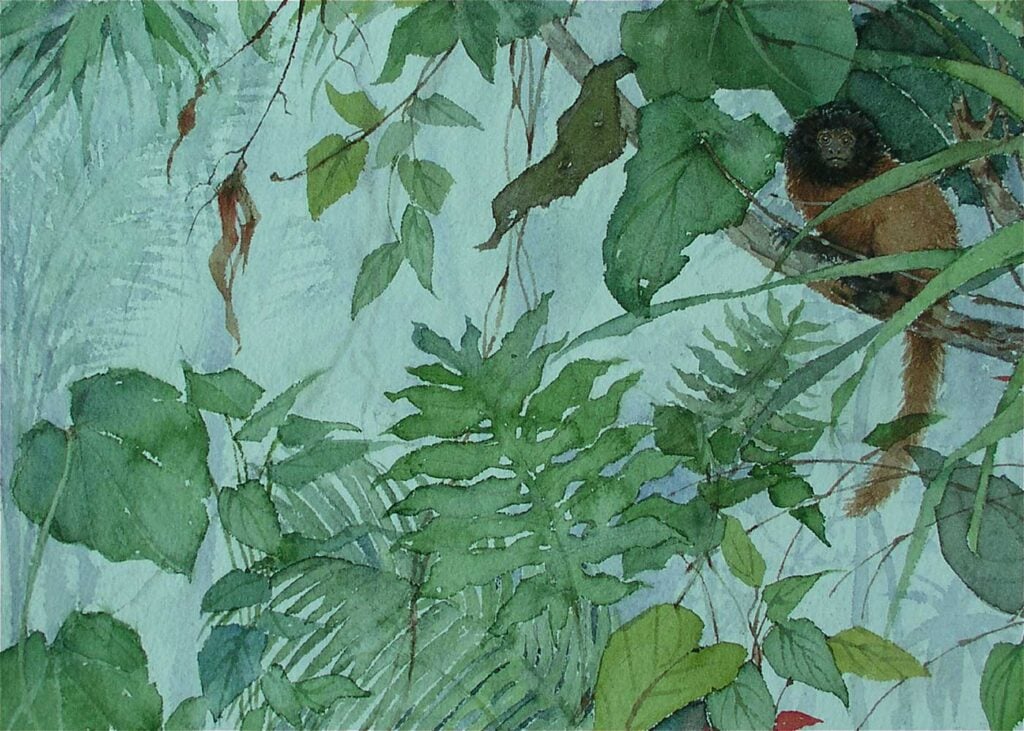Onde Estamos
Rod. Dom Pedro I, km 47
Nazaré Paulista, SP, Brasil
Caixa Postal 47 – 12960-000
Tel: (11) 3590-0041

The REFLORA Project began in 2024 to restore degraded areas in the Puranga Conquista Sustainable Development Reserve (SDR), located in the Lower Rio Negro region of Manaus. The initiative directly benefits indigenous and riverside communities through biodiversity conservation and income generation.
With the goal of restoring 200 hectares of degraded areas, REFLORA uses species native to the Amazon, agroforestry systems (a mixture of trees and crops such as fruit and vegetables) and the regeneration of secondary forests. Through environmental restoration, the project aims to strengthen the economy of the RDS’s 18 communities, focusing on seed collection, seedling production and connections with forest product markets.

In this project, financed by the Amazon Fund, IPÊ is working to consolidate the agro-ecological value chainóand organic production in the state of Amazonas, also promotingalso the improvement of the quality of life of family farmers and traditional communities and the conservation of biodiversity, through advice and training, the strengthening of local organizations, the structuring of production units, organic certification and support for marketing.
Agroecologia em Rede operates in five municipalities in Amazonas: Manaus, Rio Preto da Eva, Careiro da Várzea, Iranduba and Itacoatiara. The conservation impact is estimated to reach 12.5 million hectares of forest, in one State Conservation Unit and five rural settlements.
Starting in 2024, the project will benefit 220 rural properties, 900 organic family farming families and 3,200 people.

In 2021, with the support of the LIRA/IPÊ project – Integrated Legacy of the Amazon Region, and a partnership with LinkedIn, the largest professional social network in the world, it was possible to renovate the Maíra I boat and to initiate the Navigating Entrepreneurial Education in the Amazon project.

Project for the valorization of fair work in indigenous education, qualification, and in the performance of women in the handicraft and tourism value chain, in the Nova Esperança community (AM).

Many families in the lower Negro River live off government programs and logging, which does not guarantee fair remuneration and, most of the time, is outside the management norms. IPÊ believes in strengthening the chains of Amazonian sociobiodiversity products to generate income and value traditional knowledge and practices.

The Maíra I boat goes around the communities integrating them and promoting socio-environmental activities.

The Amazon Manatee Conservation Program began in 2003 at Anavilhanas National Park. Since then, IPÊ’s research team promotes the conservation of the species in the lower Negro River region, by conducting studies with free-living animals, reintroduction projects, and environmental awareness activities.

IPÊ was one of the organizations involved in the creation of the Mosaic of Protected Areas in the lower Negro River. It is necessary to integrate the management of the areas that are already physically connected, as well as to bring together their social actors, decreasing the situation of isolation and difficulty of managing each area individually.

IPÊ seeks to act on issues of agriculture, food safety, and cultural valorization, opening new action fronts for the conservation and sustainable use of biodiversity. This project began in 2005, and to this day is the basis of the Institute’s work in the region.

The region of the lower Negro River has a series of spatial characteristics that elevate it to the category of tourist center in the state of Amazonas. Supported by these premises, IPÊ has been developing, since 2003, the Community-Based Tourism project in the lower Negro River, with the aim of organizing tourism activities in the region, integrating the interests of conservation with those of regional development.
Rod. Dom Pedro I, km 47
Nazaré Paulista, SP, Brasil
Caixa Postal 47 – 12960-000
Tel: (11) 3590-0041
Termos de Uso | Estatuto
Copyright © Ipê – Instituto de Pesquisas Ecológicas.
Email: ipe@ipe.org.br